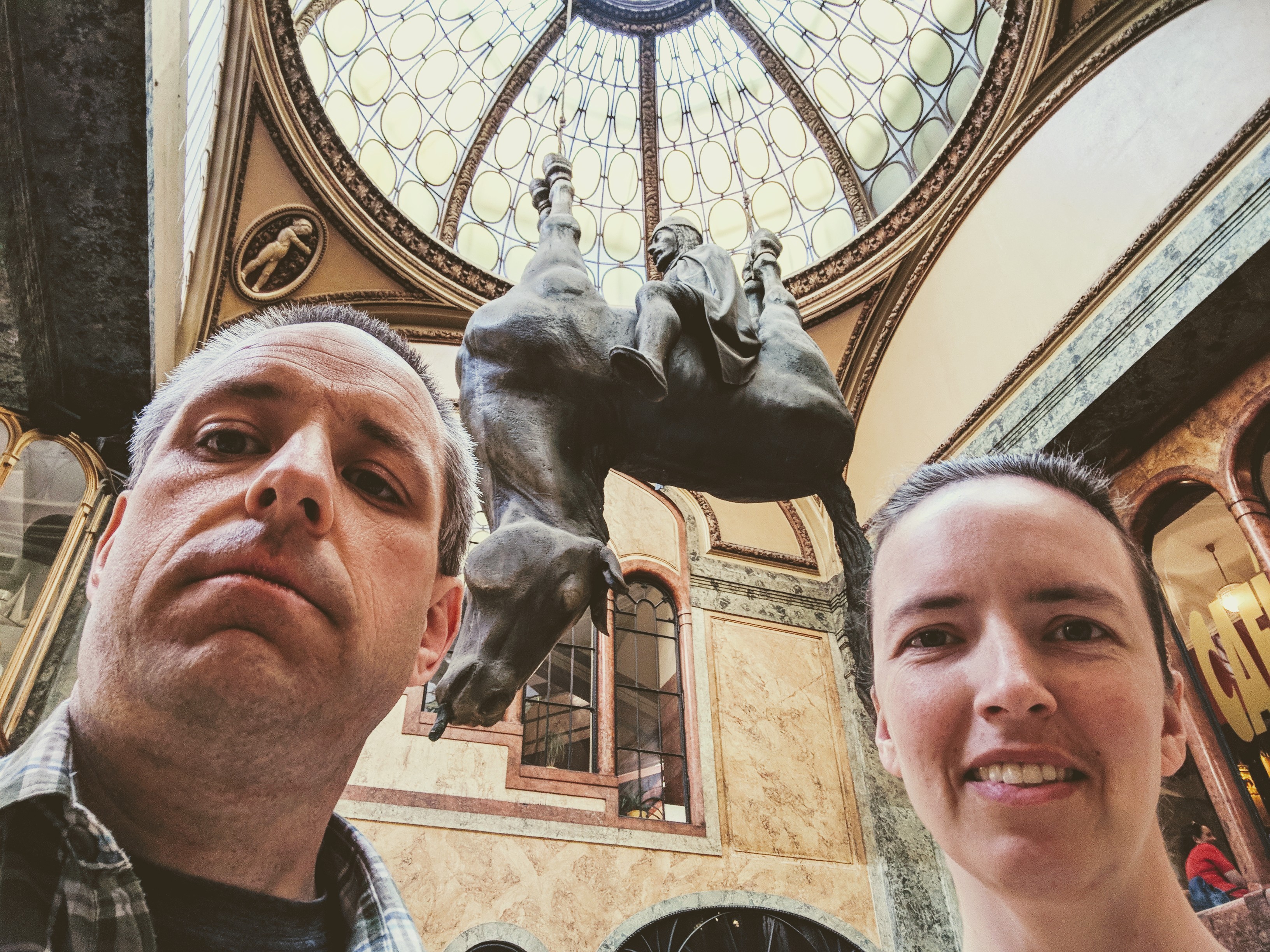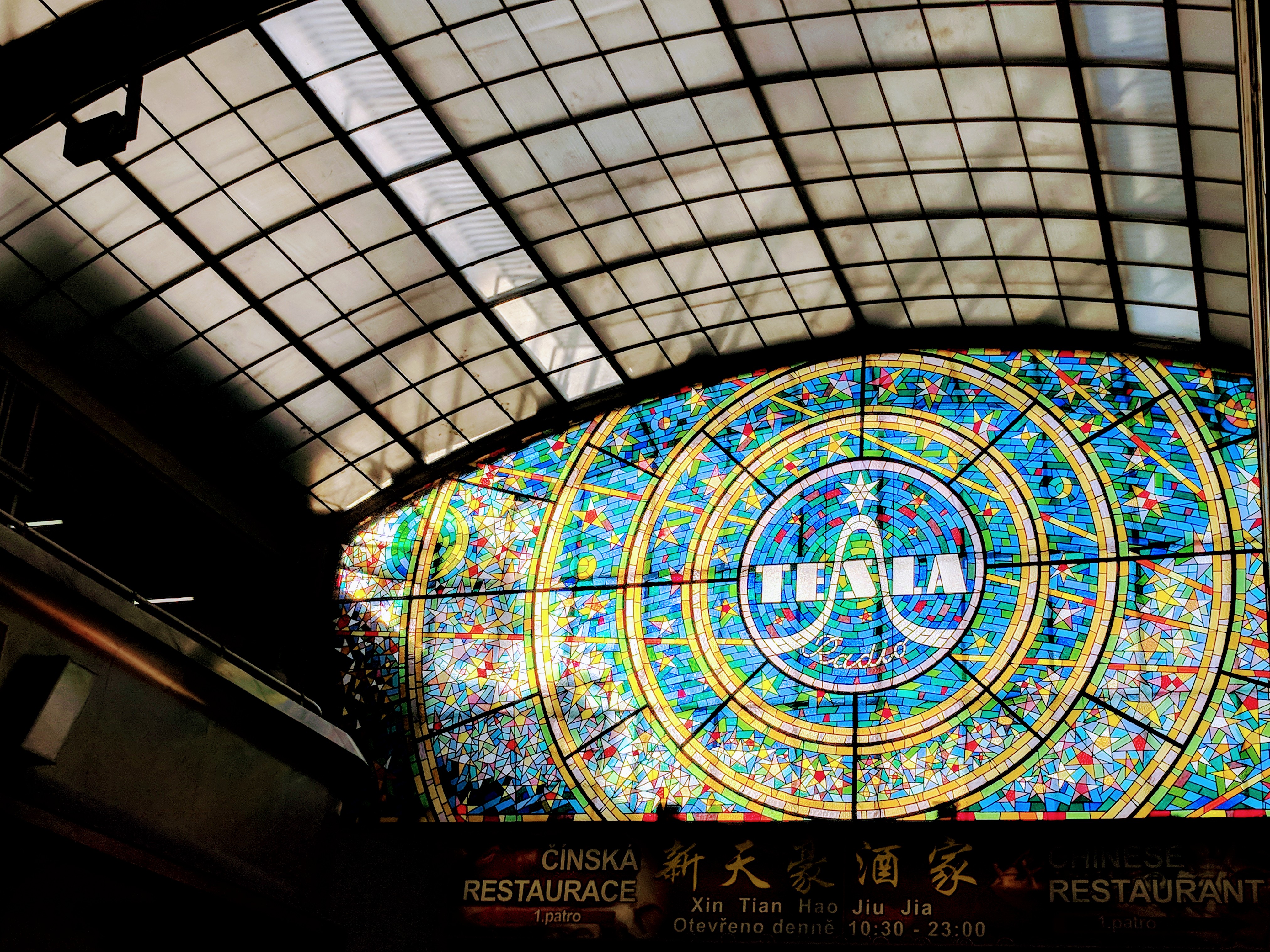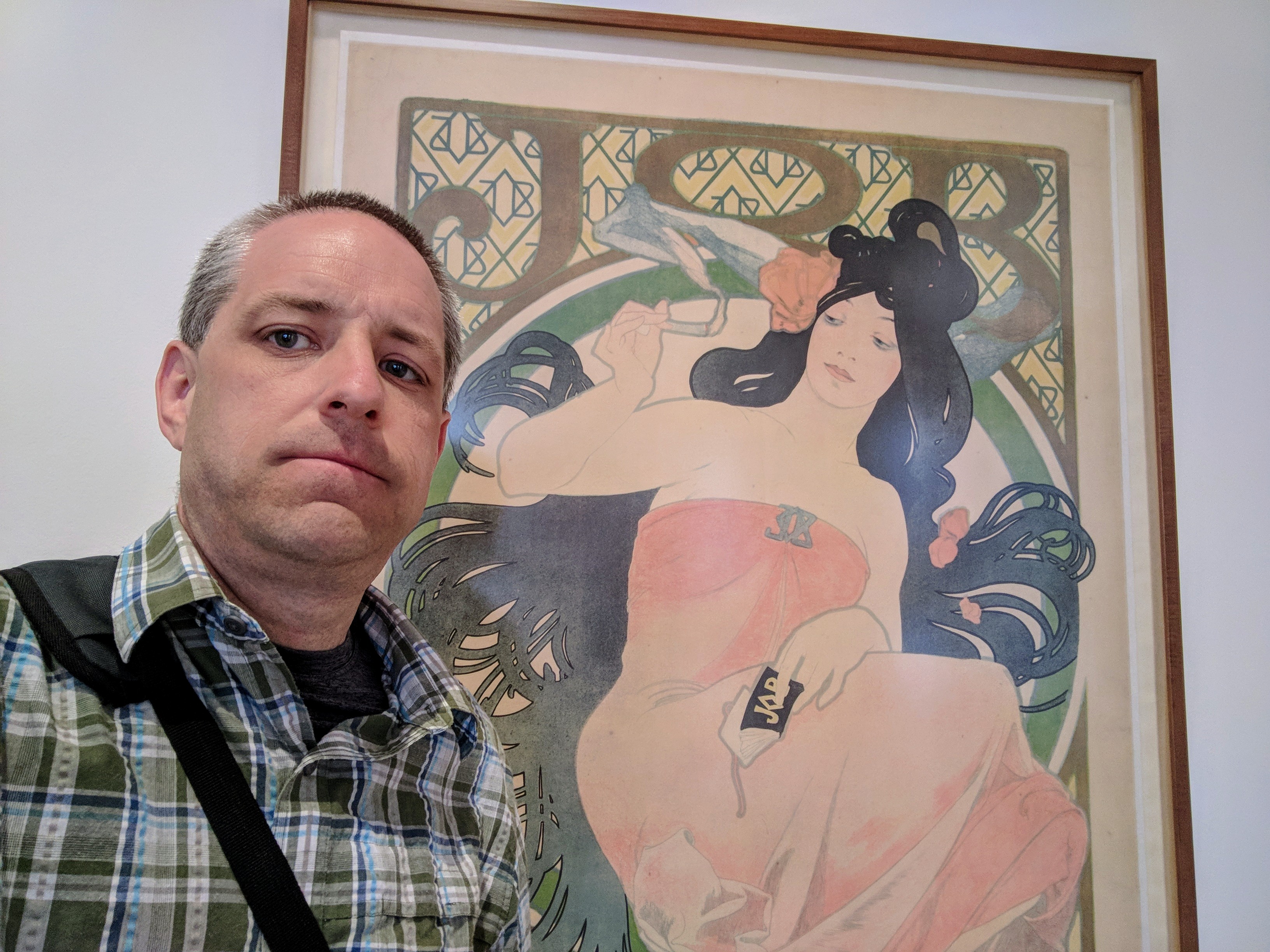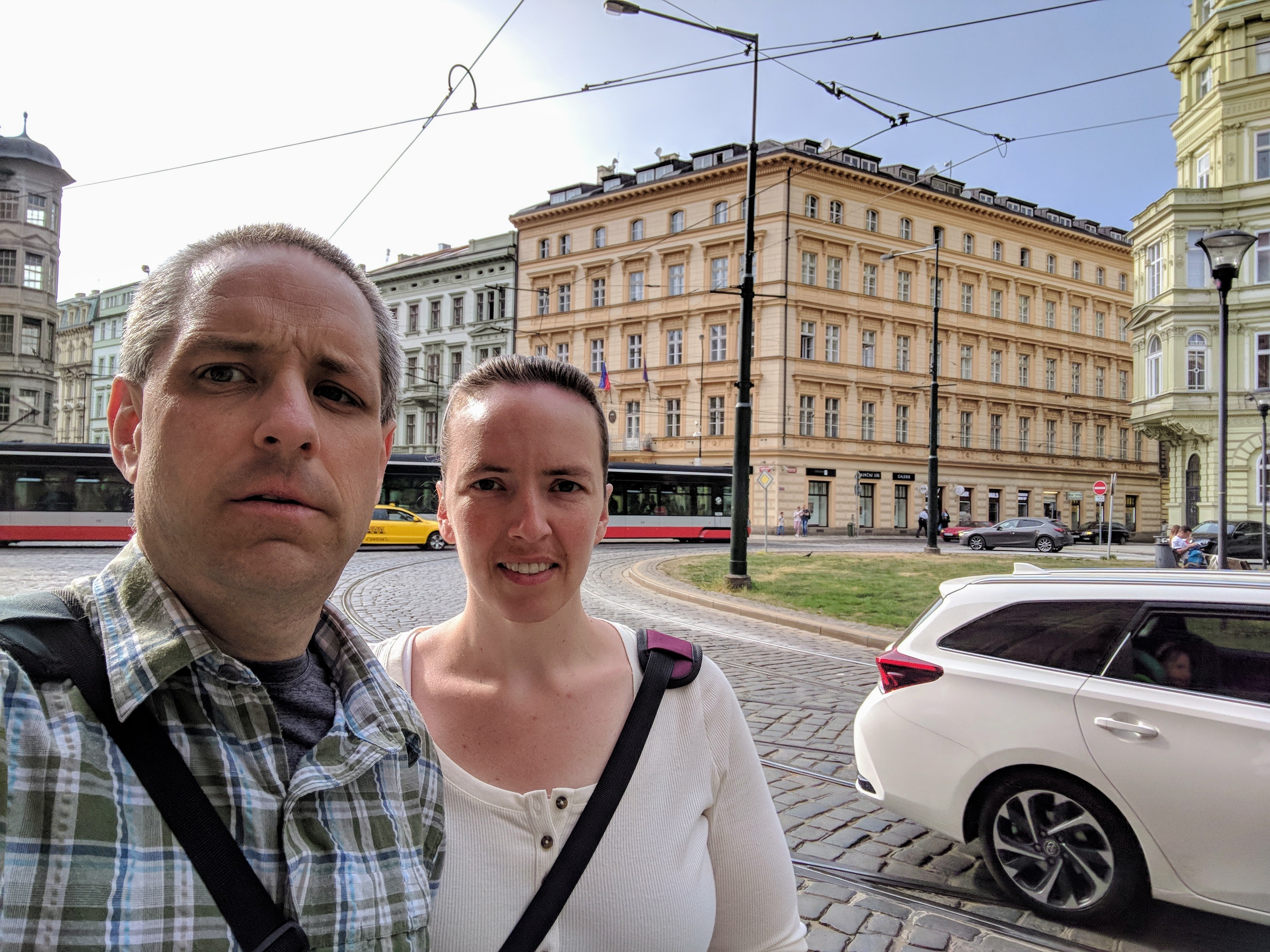Wenceslas and Mucha
Wed May 09, 2018 4:16 pmWe began our exploration of Prague in Nové Město (New Town), surrounding Wenceslas Square.


St Wenceslas was Duke of Bohemia in the 10th Century.
His significance was that a lot of people at the time were converting from Paganism to Christianity, and Wenceslas was Christian. I recommend Bohemican Podcast Episode 10

I think this is analogous to a statue of Thomas Jefferson on an upside-down horse, but that is all I have to offer.



Mucha’s prominence in the late 19th Century made him an cultural icon of Czech Nationalism, along with Dvorak and Smetana.
His art included Art Nouveau commercial water-color posters and stained glass, as well as his most famous work Slav Epic.
Not only was the late 19th Century generally a time of Nationalism in Europe, but Czech lands within the Austro-Hungarian Empire enjoyed some autonomy and wished for full independence. Note that Czech Lands refers to approximately the current area of the Czechia, Czechoslovakia being an invention of the Treaty of Versailles, which no longer exists.

This street corner is about a block from our room.